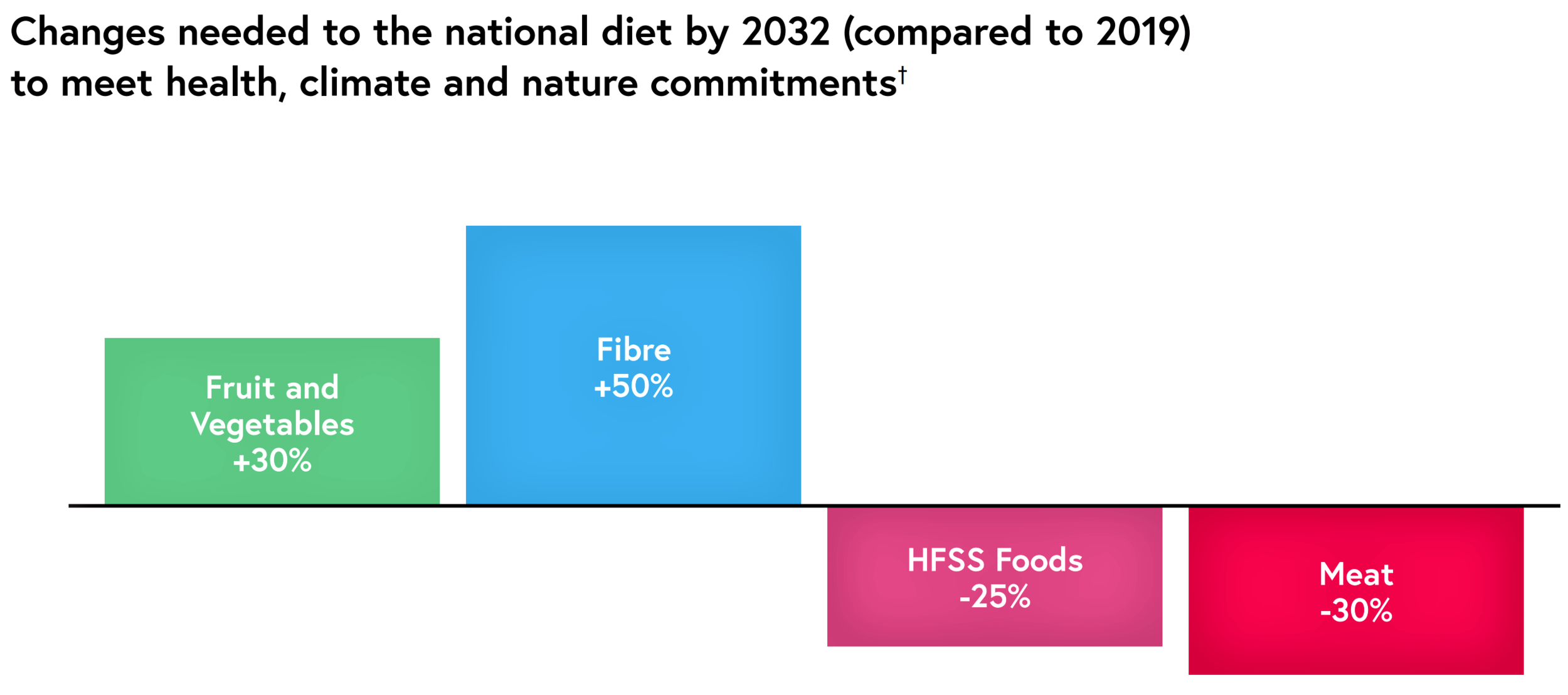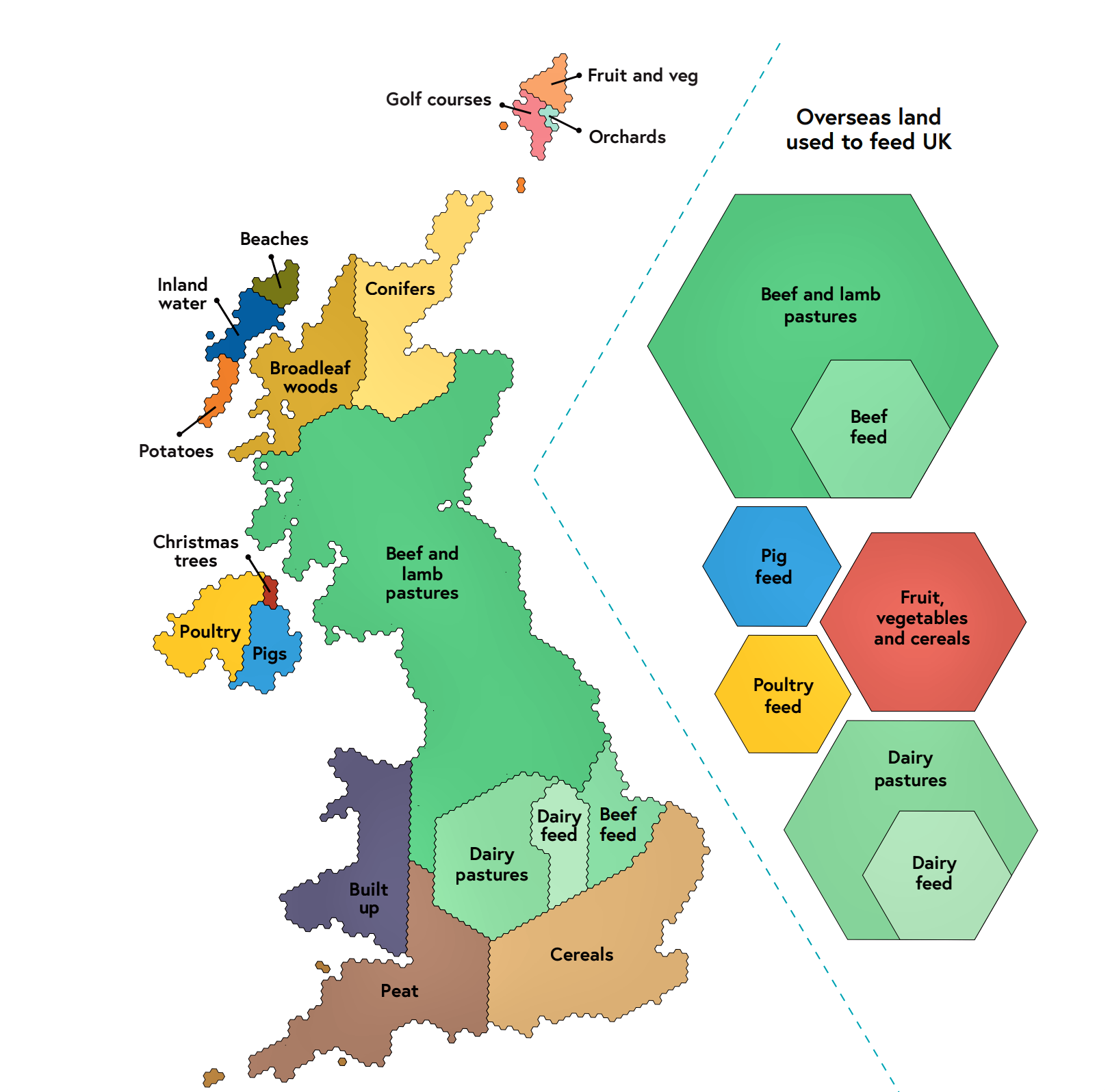The new National Food Strategy (NFS) for Britain, commissioned by the government, calls for a bold and comprehensive re-engineering of the country’s food system. It lays out the challenge in stark detail: the climate and environmental damage of the current food and farming system; the major and multiple impacts of unhealthy diets; the perversity of incentives that promote ultra-processed foods; and it directly addresses the overconsumption of meat.
The report recommends a broad range of solutions affecting food, farming and culture including: escaping the junk food cycle; reducing the burden on the National Health Service of treating diet-related diseases; a tax on sugar and salt to fund the provision of fruit and veg to low-income households; “Eat and Learn” programs for schools to learn healthy eating habits; measures to reduce diet-related inequality; reducing the abuse of antibiotics given to farm animals; and plans for transitioning farming to be more sustainable and more supportive of plant-rich diets.
One of the biggest challenges of the climate and biodiversity crisis is how to get governments, policy makers and businesses to take decisive action, especially on the controversial and politically sensitive topics of farming and food. This strategy is a detailed and holistic approach and it explains why action is urgently needed and how all of the variables can be addressed together. It lays out a blueprint for change and recommends specific measures for government to adopt.
Source: National Food Strategy. *HFSS: High in fat, sugar and salt
The reports calls for a 30% reduction in meat consumption by 2030, through farming and consumer incentives, but not a tax on meat. Numerous scientific studies show that richer nations need more radical reductions in meat and dairy consumption to effectively fight the climate crisis, and if accepted by the government, “the recommendation would be a world leading goal,” according to The Guardian.
“This is no time for half-hearted measures. If both government and businesses are willing to take bold action and prioritize the public’s health, then we have an incredible opportunity to create a much fairer and more sustainable food system for all families,” says celebrity chef Jamie Oliver.
Source: National Food Strategy
The report lays out the many challenges inherent in the farming system. The above chart showcases the inefficiency as well as the huge land and environmental footprint of current production methods.
Source: National Food Strategy
The above chart shows the health and environmental impacts of various foods. Overconsumption of red and processed meats increases the risk to both human health and the environment. Plant foods tend to be good for both people and the planet. Added sugar is a major driver of poor health but has a much lower environmental impact.
The National Food Strategy “is not only a masterly study of UK’s food problem, but it also constructs a framework wide enough to be deployed for studying the food problems societies face everywhere. The recommendations are detailed, convincing, and would be entirely implementable if we cared about ourselves and the world around us,” says Sir Partha Dasgupta, respected biodiversity expert and Professor Emeritus of Economics, University of Cambridge.
While the report has been criticized for not going far enough to tackle the climate and environmental impact of high emission foods like meat and dairy or setting enough hard targets, it is a realistic, practical blueprint to ramp up the transition to the low emission, more environmentally friendly, and healthier food and farming system needed to meet the climate, biodiversity and health crises. No government has yet embraced such a detailed and ambitious plan to take on this challenge and grapple with the sacred cows in the food and farming sector.
The British government is studying the report and says it will respond. Will it embrace the recommendations and take the necessary actions to lead the way on how we need to live on this planet?




